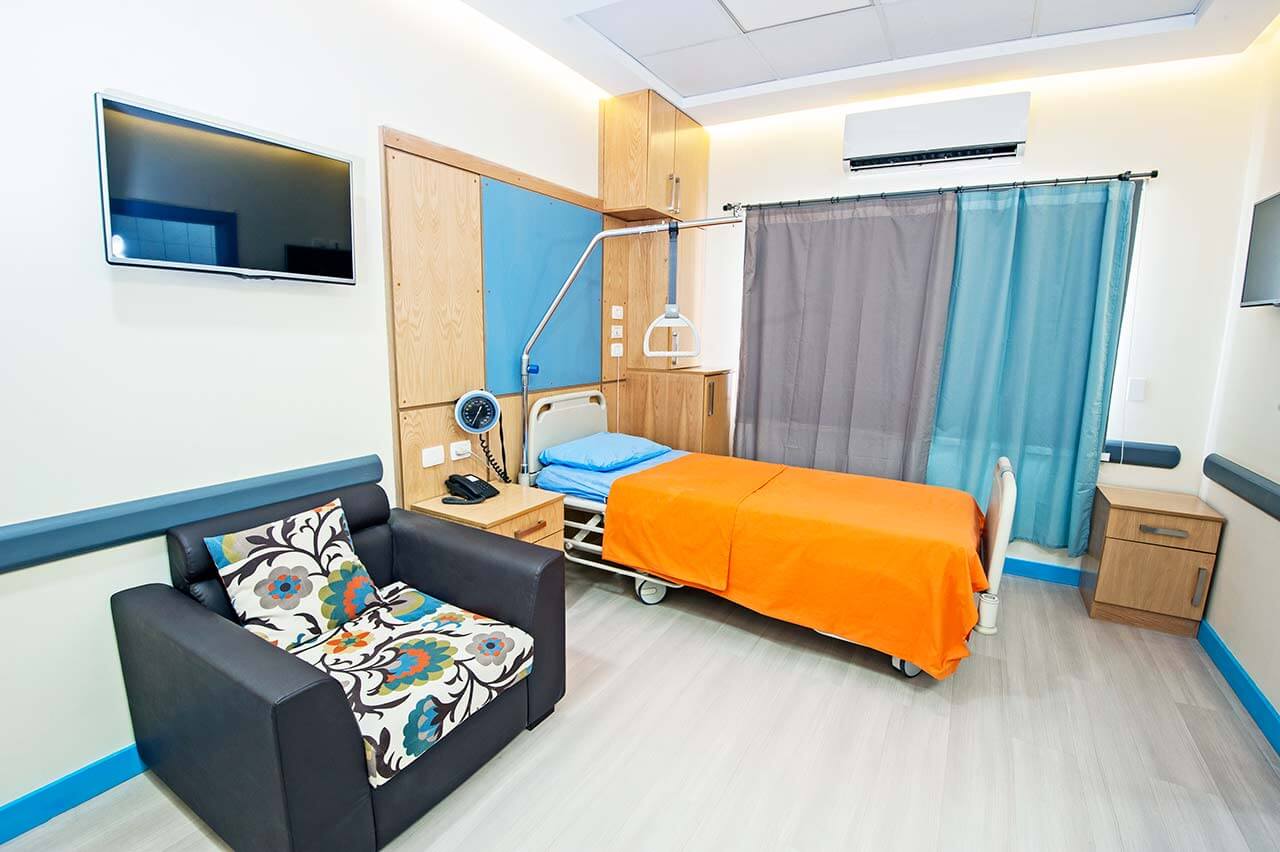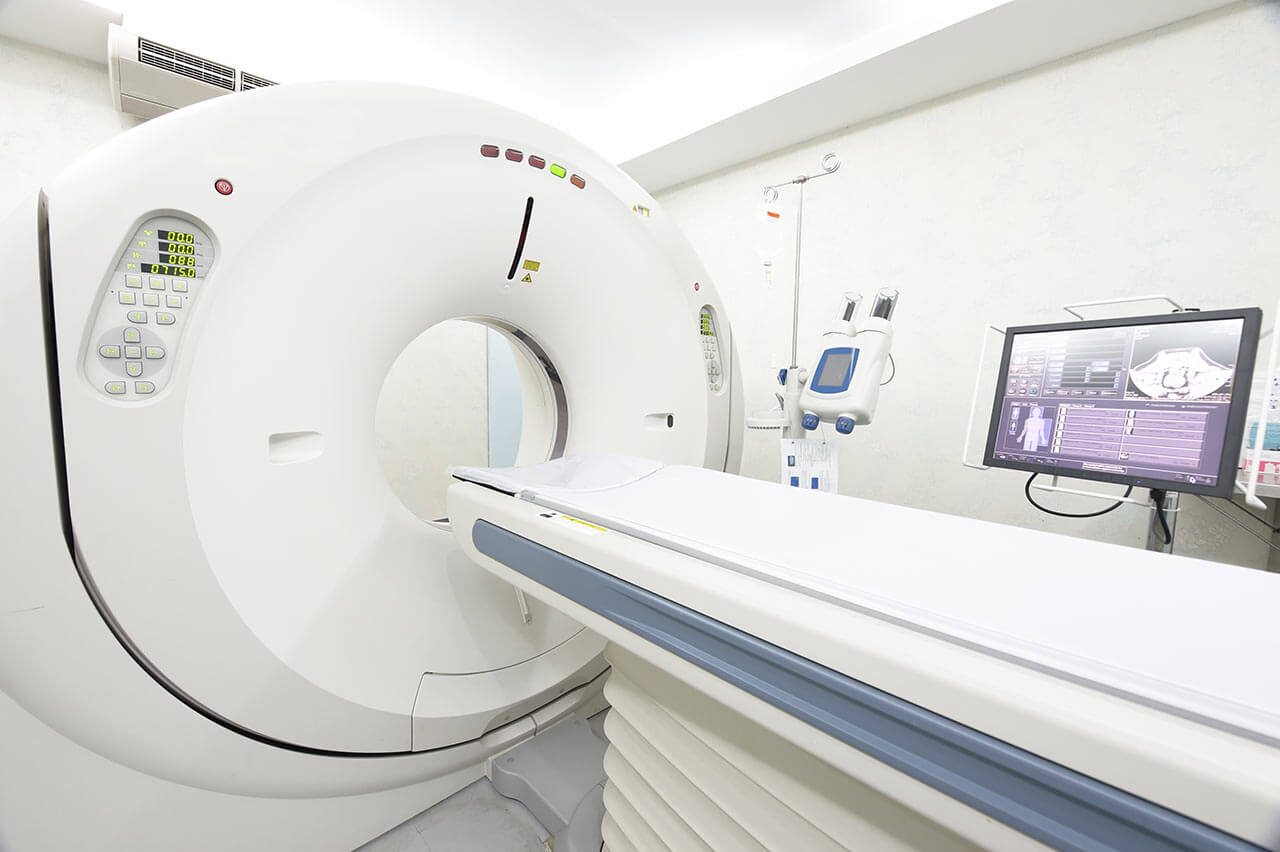
The program includes:
- Initial presentation in the clinic
- clinical history taking
- physical examination
- review of medical records
- laboratory tests:
- complete blood count
- biochemical analysis of blood
- TSH, fT3, fT4
- indicators of inflammation (CRP, ESR)
- indicators blood coagulation
- otorhinolaryngological examination:
- rhinoscopy
- otoscopy
- audiometry
- x-ray/ ultrasound/ CT of paranasal sinuses
- microbiological examination of nasal fluid
- preparation according to preoperative standard
- ethmoidectomy
- nursing services
- consultation of related specialists
- treatment by chief physician and all leading experts
- explanation of individual treatment plan
- written statement
Required documents
- Medical records
- CT scan (if available)
Service
You may also book:
 BookingHealth Price from:
BookingHealth Price from:
About the department
The Department of Adult and Pediatric Otolaryngology at the Bundeswehr Hospital Berlin offers the full range of diagnostics, surgical and conservative treatment of ENT diseases. The priority focuses of the department's clinical activity are on the surgical treatment of ENT diseases and plastic interventions in the head and neck. The department has state-of-the-art operating rooms, in which more than 2,500 surgical interventions of varying complexity are performed annually. The department's doctors have excellent qualifications in the field of endoscopic functional surgery of the paranasal sinuses, salivary glands and laser tumor removal. In addition, the department is distinguished by its successful clinical activities in the field of microsurgical procedures for the treatment of middle ear and laryngeal pathologies. The patient with his individual needs and wishes always comes first for the medical team. The treatment is provided in strict accordance with the recommendations of the German Society of Oto-Rhino-Laryngology, Head and Neck Surgery (DGHNO). The department is headed by Dr. med. Jens Förster.
When performing the surgical treatment, the department's specialists widely use innovative surgical techniques, for example, navigation surgery and endoscopic procedures on the salivary glands, which significantly reduce the risk of postoperative complications, minimize pain and help the patients to reduce the recovery period after the intervention.
Thanks to the introduction of the very latest surgical techniques, many operations are performed on an outpatient basis, and the patient has the opportunity to return home on the day of the surgical procedure. The department's specialists perform such outpatient operations as microlaryngoscopy, tympanic drainage, intratympanic injections of cortisone and gentamicin, removal of small neoplasms in the face and head, laser removal of nasal polyps, and others.
The therapy is based on an interdisciplinary approach. In particular, this applies to cancer treatment, which involves related departments and partner clinics. Each clinical case is considered at regular interdisciplinary tumor boards, during which the optimal treatment regimen is planned. These opportunities create excellent conditions for the provision of effective and high-quality medical care.
The department's doctors also admit young patients with ENT diseases. The most popular therapeutic procedures in children include adenectomy (nasopharyngeal tonsil removal), radiofrequency tonsillotomy (palatine tonsil removal) and tympanic drainage for exudative otitis media. The interventions are performed with anesthesia to maximize the comfort of the child.
The department's diagnostic options include:
- Head and neck ultrasound scans
- Otoneurology for the examination of voice and speech, hearing, middle ear and vestibular system functions
- Hearing screening for the selection of hearing aids
- Registration of acoustic brainstem evoked potentials
- Allergy tests: prick tests, radioallergosorbent tests, nasal provocation testing
- Videolaryngoscopy (in HD quality), narrow-band endoscopy
- Rhinomanometry
- Gustometry and olfactometry
- Other diagnostic methods
The department's range of medical services includes:
- Surgical treatment on an inpatient basis
- Operations on the nasal septum and paranasal sinuses
- Endoscopic interventions
- Functional surgery
- Minimally invasive surgery
- Laser surgery
- Navigation surgery
- Microsurgical interventions on the inner and middle ear
- Tympanic membrane reconstruction
- Ossicular chain reconstruction
- Laser stapedotomy
- Eustachian tube dilation
- Ablation for exostoses
- Surgical treatment of cholesteatoma
- Minimally invasive laser surgery on the larynx for the treatment of vocal cord polyps, Reinke's edema, and tumors
- Functional and aesthetic surgery
- Nasal plastic surgery: septorhinoplasty, rhinophyma
- Ear plastic surgery (correction of protruding ears)
- Plastic reconstructive interventions after accidents and injuries
- Surgical interventions on the salivary glands with intraoperative neuromonitoring of the facial nerves, as well as sialendoscopy
- Conventional and laser surgery for ENT cancers
- Surgical treatment of midface injuries (for example, orbital floor fractures, zygomatic arch fractures)
- Minimally invasive surgery for rhonchopathy (snoring treatment) using radiofrequency techniques
- Tonsillectomy (palatine tonsil removal)
- Surgical interventions in children
- Adenotomy (nasopharyngeal tonsil removal)
- Tonsillectomy (palatine tonsil removal) using radiofrequency techniques
- Tympanic drainage for exudative otitis media
- Operations on the nasal septum and paranasal sinuses
- Surgical treatment on an outpatient basis
- Surgical interventions in children
- Microlaryngoscopy
- Tympanic drainage in adults
- Intratympanic injections (cortisone, gentamicin)
- Removal of small neoplasms (for example, atheromas, basaliomas) in the face and head
- Laser therapy for turbinate pathologies and endonasal polyps
- Conservative treatment
- Drug therapy with pills
- Intravenous therapy (for example, antibiotics, cortisone)
- Other methods of conservative and surgical treatment
About hospital
The Bundeswehr Hospital Berlin enjoys a reputation as one of the leading medical facilities in Germany, where patients receive top-class medical care corresponding to the high standards of European university medicine. The medical center is an academic hospital of the Charite University Hospital Berlin – the largest and the most reputable in all of Europe. The main clinical focuses of the medical facility include emergency care, traumatology, urology, internal medicine, surgery, neurosurgery, neurology, nuclear medicine and others. The hospital offers 15 specialized departments, whose medical teams guarantee excellent treatment results, safety and an individual approach to their patients.
The hospital's staff consists of more than 1,100 competent employees. They work hand in hand to provide their patients with comprehensive and the most effective treatment. Of paramount importance is an individual approach to each patient and his clinical case. The specialists are always open to a dialogue with their patient, tell about the specificities of the upcoming treatment and its expected results. Whenever required, it is possible to involve experienced psychologists in the therapeutic process, who will help the patients to get rid of depressive states and set themselves up for a favorable treatment outcome.
The hospital has at its command state-of-the-art technical resources: equipment for minimally invasive interventions, diagnostic and therapeutic endoscopic procedures, navigation systems, advanced surgical microscopes, various laser devices, imaging systems for the accurate examinations and percutaneous interventional procedures.
The hospital has a quality management system, thanks to which it can strictly control the quality of patient care and other internal processes. In addition, the healthcare facility became the first Bundeswehr hospital, which was awarded the KTQ® certificate (06.02.2006). The KTQ® certification is carried out every three years and the hospital always passes it successfully. And then in 2000, the hospital was certified in accordance with the DIN EN ISO 9001:2000 standards. These achievements testify to the outstanding quality of medical care and the leading position of the hospital in the healthcare sector.
Photo: (с) depositphotos
Accommodation in hospital
Patients rooms
The patients of the Bundeswehr Hospital Berlin live in comfortable single and double patient rooms. Each patient room is equipped with an ensuite bathroom with a shower and a toilet. The patient room furnishing includes a comfortable bed, a bedside table, a TV and a telephone. To ensure a pleasant hospital stay, here is a library with an excellent choice of audiobooks, magazines and games. There is also a beautiful park on the territory of the hospital where one can enjoy peace, clean air and beautiful nature.
Meals and Menus
The hospital offers delicious and healthy three meals a day: a buffet breakfast, a hearty lunch and a light dinner. Every day, patients have a choice of three menus. Vegetarian dishes are also available.
If for some reason you do not eat all the foods, you will be offered an individual menu. Please inform the medical staff about your dietary preferences prior to the treatment.
Further details
Standard rooms include:
Accompanying person
Your accompanying person may stay with you in your patient room or at the hotel of your choice during the inpatient program.
Hotel
You may stay at the hotel of your choice during the outpatient program. Our managers will support you for selecting the best option.




